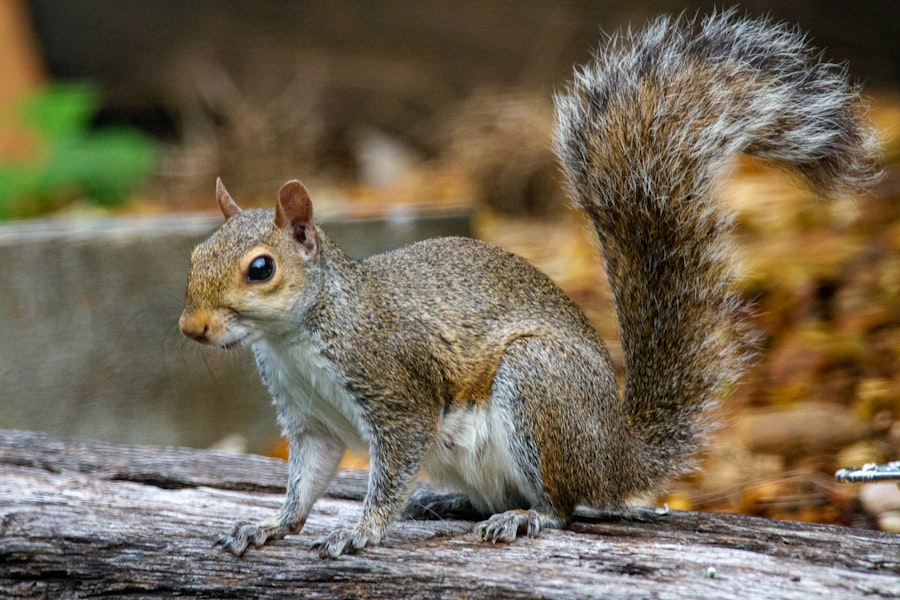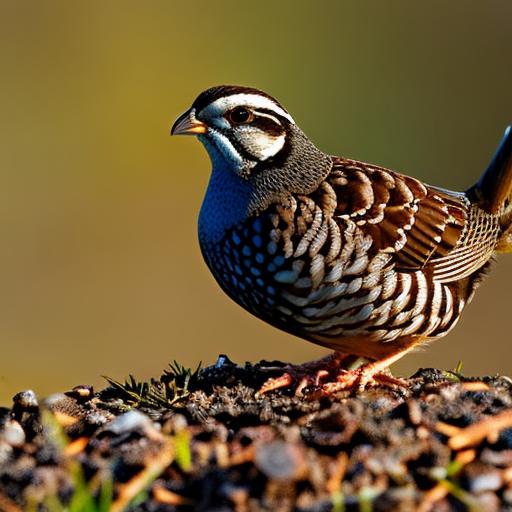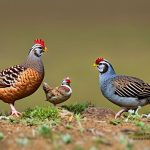Backyard quail keeping has become increasingly popular in recent years, as more and more people are looking for sustainable and self-sufficient ways to produce their own food. Quail are small, easy to care for, and can provide a steady supply of eggs and meat for your family. Whether you live in a rural area or an urban setting, quail can be a great addition to your backyard farm or homestead. In this article, we will explore the ins and outs of backyard quail keeping, from choosing the right breed to setting up a coop and run, to feeding and watering your quail, to collecting and using their eggs. We will also discuss important tips for keeping your quail healthy and disease-free. By the end of this article, you will have all the information you need to start your own backyard quail flock and enjoy the benefits of these charming and productive birds.
Quail are small game birds that belong to the same family as pheasants and partridges. They are known for their delicious eggs, which are prized for their rich flavor and high nutritional value. Quail eggs are also popular in gourmet cooking and are often used in upscale restaurants for their delicate taste and beautiful appearance. In addition to their eggs, quail can also be raised for meat, which is lean, tender, and flavorful. Quail meat is a popular choice for health-conscious consumers, as it is low in fat and high in protein. With their small size and gentle nature, quail are also relatively easy to care for, making them an ideal choice for backyard poultry enthusiasts. Whether you are a beginner or an experienced homesteader, quail can be a rewarding addition to your backyard farm.
Key Takeaways
- Backyard quail keeping is a rewarding and sustainable hobby that provides fresh eggs and meat.
- When choosing the right quail breed for your backyard, consider factors such as egg production, temperament, and space requirements.
- Setting up a quail coop and run involves providing adequate space, shelter, and protection from predators.
- Feeding and watering your quail requires a balanced diet of commercial feed, fresh water, and occasional treats.
- Quail health and disease prevention are important aspects of backyard quail keeping, including regular health checks and biosecurity measures.
Choosing the Right Quail Breed for Your Backyard
When it comes to choosing the right quail breed for your backyard, there are several factors to consider, including egg production, temperament, and size. Some of the most popular quail breeds for backyard keeping include the Coturnix quail, also known as Japanese quail, the Bobwhite quail, and the California quail. Coturnix quail are known for their high egg production, with some hens laying up to 300 eggs per year. They are also docile and easy to handle, making them a great choice for beginners. Bobwhite quail are native to North America and are prized for their delicious meat. They are also known for their distinctive call, which adds a charming touch to any backyard flock. California quail are known for their striking appearance, with their distinctive plume on top of their heads. They are also relatively easy to care for and can adapt well to a variety of climates.
When choosing a quail breed for your backyard, it’s important to consider your specific needs and goals. If you are primarily interested in egg production, Coturnix quail may be the best choice for you. If you are interested in raising quail for meat, Bobwhite quail may be a better option. Consider the climate and environment in which you live, as some quail breeds may be better suited to certain conditions than others. It’s also important to consider the availability of quail breeds in your area, as some breeds may be more difficult to find than others. By carefully considering these factors, you can choose the right quail breed for your backyard and set yourself up for success in your quail keeping endeavors.
Setting Up a Quail Coop and Run
Setting up a quail coop and run is an essential step in backyard quail keeping. Quail are relatively small birds, so they don’t require a large amount of space, but it’s important to provide them with a safe and comfortable environment in which to live and thrive. When designing a quail coop and run, it’s important to consider factors such as ventilation, predator protection, and ease of cleaning. The coop should be well-ventilated to ensure good air circulation and prevent the buildup of ammonia from droppings. It should also be secure from predators such as raccoons, foxes, and birds of prey, as quail are vulnerable to attacks from these animals.
The run should be spacious enough to allow the quail to move around freely and engage in natural behaviors such as dust bathing and foraging. It should also be protected from the elements, with adequate shade in hot weather and protection from wind and rain. The flooring of the run should be covered with a layer of sand or straw to provide a soft surface for the quail to walk on and absorb moisture from droppings. It’s also important to provide the quail with access to fresh water and a balanced diet to ensure their health and well-being. By setting up a well-designed coop and run, you can provide your quail with a safe and comfortable home where they can thrive and produce delicious eggs for your family.
Feeding and Watering Your Quail
Feeding and watering your quail is an important aspect of backyard quail keeping. Quail have specific dietary needs that must be met in order for them to stay healthy and productive. A balanced diet for quail should include a high-quality commercial feed that is specifically formulated for game birds. This feed should contain the right balance of protein, vitamins, and minerals to support egg production and overall health. In addition to commercial feed, quail can also be fed small amounts of fresh fruits and vegetables as treats, such as leafy greens, berries, and melons. It’s important to avoid feeding them foods that are high in salt or sugar, as these can be harmful to their health.
In addition to providing a balanced diet, it’s important to ensure that your quail have access to clean, fresh water at all times. Quail can drink a surprising amount of water, especially during hot weather or when they are laying eggs. It’s important to provide them with waterers that are designed specifically for small birds, as larger waterers may be difficult for them to access. Waterers should be cleaned regularly to prevent the buildup of algae or bacteria that could make the quail sick. By providing your quail with a balanced diet and access to clean water, you can ensure that they stay healthy and productive in your backyard flock.
Quail Health and Disease Prevention
Quail health and disease prevention are important aspects of backyard quail keeping. Like all animals, quail are susceptible to a variety of diseases and health issues that can impact their well-being and productivity. It’s important to monitor your quail regularly for signs of illness or injury, such as lethargy, loss of appetite, or changes in behavior. If you notice any concerning symptoms, it’s important to consult with a veterinarian who is experienced in treating poultry.
In addition to monitoring your quail for signs of illness, it’s important to take proactive measures to prevent disease in your flock. This includes practicing good biosecurity measures, such as quarantining new birds before introducing them to your existing flock, keeping the coop and run clean and free of droppings, and preventing contact with wild birds or other animals that could carry diseases. It’s also important to provide your quail with a balanced diet, clean water, and a comfortable living environment to support their overall health and immune function.
By taking these proactive measures, you can help prevent disease in your quail flock and ensure that they stay healthy and productive for years to come.
Collecting and Using Quail Eggs

Collecting and using quail eggs is one of the most rewarding aspects of backyard quail keeping. Quail eggs are prized for their rich flavor and high nutritional value, making them a popular choice for home cooks and gourmet chefs alike. In addition to being delicious, quail eggs are also beautiful, with speckled shells that come in a variety of colors including brown, blue, and white.
When collecting quail eggs, it’s important to handle them gently to prevent breakage or damage to the shells. Quail eggs should be collected daily to ensure that they stay fresh and clean. They can be stored in the refrigerator for up to three weeks before use.
Quail eggs can be used in a variety of ways in cooking, from simple preparations such as hard-boiling or frying, to more elaborate dishes such as omelets, frittatas, or baked goods. They can also be pickled or preserved in brine for longer storage. Quail eggs are prized for their delicate flavor and creamy texture, making them a versatile ingredient in a wide range of recipes.
By collecting and using quail eggs from your backyard flock, you can enjoy the delicious flavor and nutritional benefits of these small but mighty eggs.
Tips for Successful Backyard Quail Keeping
Successful backyard quail keeping requires attention to detail and proactive care for your flock. Here are some tips for ensuring success in your quail keeping endeavors:
1. Provide a safe and comfortable living environment: Ensure that your quail have a well-designed coop and run that provides protection from predators, good ventilation, and access to clean water.
2. Choose the right breed: Consider your specific goals for raising quail (egg production vs meat production) as well as the climate in which you live when choosing a breed.
3. Feed a balanced diet: Provide your quail with a high-quality commercial feed that is specifically formulated for game birds, along with small amounts of fresh fruits and vegetables as treats.
4. Monitor for signs of illness: Regularly monitor your quail for signs of illness or injury, such as changes in behavior or appetite.
5. Practice good biosecurity: Take proactive measures to prevent disease in your flock by practicing good biosecurity measures such as quarantining new birds before introducing them to your existing flock.
By following these tips, you can ensure that your backyard quail keeping endeavors are successful and rewarding for both you and your flock.
In conclusion, backyard quail keeping can be a rewarding and sustainable way to produce your own food at home. By choosing the right breed, setting up a well-designed coop and run, providing a balanced diet and clean water, monitoring for signs of illness, collecting and using their eggs, and following important tips for success, you can enjoy the benefits of raising these charming birds in your own backyard. Whether you are interested in raising quail for their delicious eggs or flavorful meat, or simply enjoy their gentle nature as pets, backyard quail keeping can be a fulfilling hobby that provides both food and enjoyment for you and your family.
In conclusion, backyard quail keeping can be a rewarding and sustainable way to produce your own food at home. By choosing the right breed, setting up a well-designed coop and run, providing a balanced diet and clean water, monitoring for signs of illness, collecting and using their eggs, and following important tips for success, you can enjoy the benefits of raising these charming birds in your own backyard. Whether you are interested in raising quail for their delicious eggs or flavorful meat, or simply enjoy their gentle nature as pets, backyard quail keeping can be a fulfilling hobby that provides both food and enjoyment for you and your family. With proper care and attention, quail can thrive in a backyard setting and provide a sustainable source of protein for your household.
If you’re interested in backyard quail keeping, you might also want to check out this informative article on large chicken coop ideas from Poultry Wizard. They offer practical tips and creative solutions for creating a spacious and comfortable living environment for your poultry. Whether you’re raising quails, chickens, or geese, having a well-designed coop is essential for their health and well-being. Take a look at their large chicken coop ideas to get inspired for your own backyard setup.
FAQs
What is backyard quail keeping?
Backyard quail keeping refers to the practice of raising quail in a small, domestic setting such as a backyard or garden. This can be for the purpose of producing eggs, meat, or simply as a hobby.
What are the benefits of backyard quail keeping?
Backyard quail keeping can provide a sustainable source of fresh eggs and meat. Quail are also relatively low maintenance and can be kept in smaller spaces compared to other poultry, making them suitable for urban or suburban environments.
What do quail need in their environment?
Quail require a secure and predator-proof enclosure, access to fresh water, a balanced diet, and protection from extreme weather conditions. They also need space to roam and dust bathe.
What do quail eat?
Quail eat a diet of commercial quail feed, supplemented with fresh greens, grains, and protein sources such as mealworms or small insects. It’s important to provide a balanced diet to ensure their health and egg production.
How many quail can be kept in a backyard setting?
The number of quail that can be kept in a backyard setting depends on the size of the enclosure and the local regulations. As a general guideline, 1 square foot of space per quail is recommended to ensure they have enough room to move around and exhibit natural behaviors.
Are there any legal considerations for backyard quail keeping?
Local regulations regarding the keeping of quail and other poultry vary, so it’s important to check with the local authorities before starting a backyard quail keeping operation. This may include restrictions on the number of birds, zoning laws, and health and safety regulations.
Meet Walter, the feathered-friend fanatic of Florida! Nestled in the sunshine state, Walter struts through life with his feathered companions, clucking his way to happiness. With a coop that’s fancier than a five-star hotel, he’s the Don Juan of the chicken world. When he’s not teaching his hens to do the cha-cha, you’ll find him in a heated debate with his prized rooster, Sir Clucks-a-Lot. Walter’s poultry passion is no yolk; he’s the sunny-side-up guy you never knew you needed in your flock of friends!







